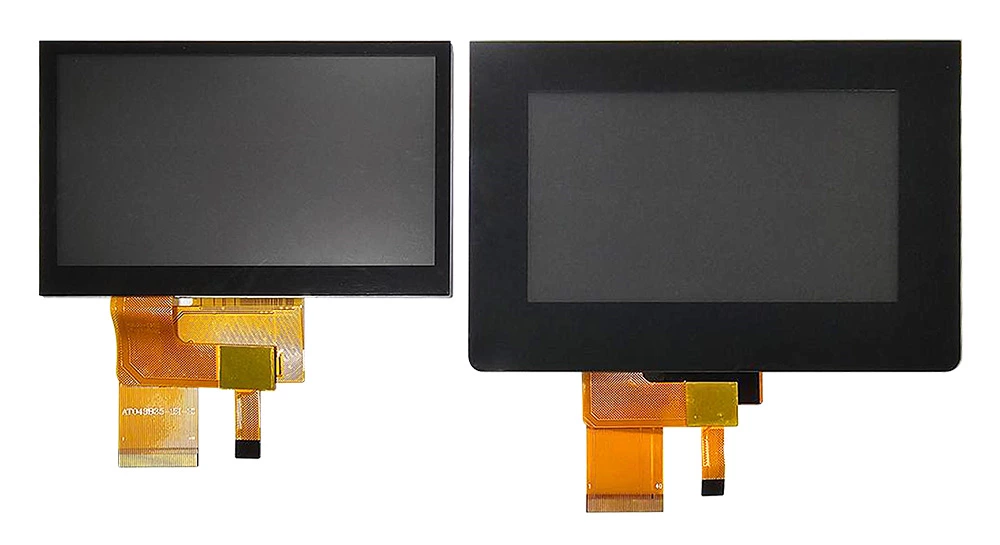
The display is used as an interactive interface and there are generally two types of installation.
Here we will focus on the second option: this is to add a piece of glass to the LCM surface, it can be laminated directly to the LCM surface or with a touch sensor. We can do screen printing outside the display area of the cover glass, where you can add your brand logo, or we can do some treatment on the surface of the cover glass, such as AG, AR, AF, etc. To meet the needs of different scenarios.

Tempered cover glass can also be made in different thicknesses, we have 0.55mm, 0.7mm, 1.1mm, 1.8mm, 2.0mm, 3.0mm to choose from, 4mm, 6mm or even thicker can also be made, of course the quality of these two thicknesses of glass will be slightly inferior, they are not optical glass.
Here another problem arises, 3mm above the glass because of the thickness, if you need to bring the touch function, then the driving ability of the touch chip long has higher requirements, we use Iiltek, EETI, Microchip and other touch solutions, can achieve the touch of thick cover.
Because the cover glass is effectively the first layer of media that comes into direct contact with the user, it is imperative that it is fine and flawless. It can also come in a variety of shapes to perfectly match your overall design. It can be moulded, it can be supplied with pierced holes, screen printed holes, 2.5D edge effects, with steps, etc.
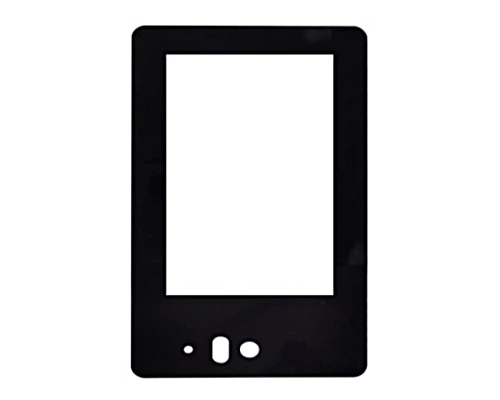
Through holes
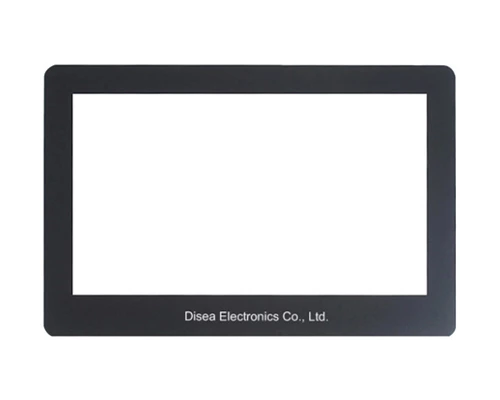
R-angle
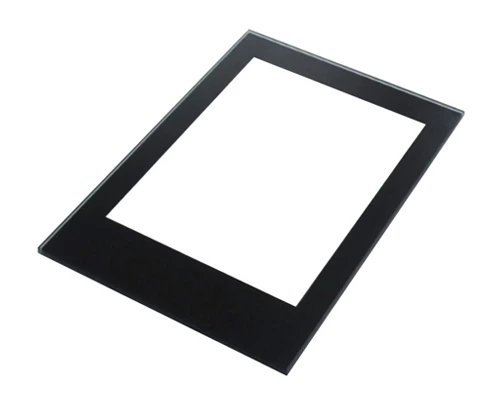
Thick cover glass
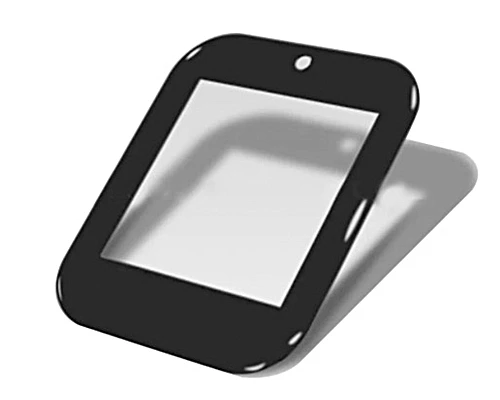
2.5D
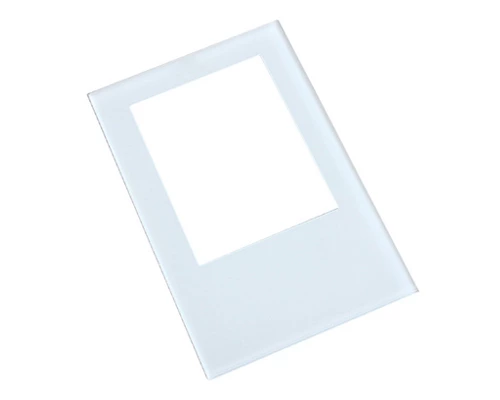
White
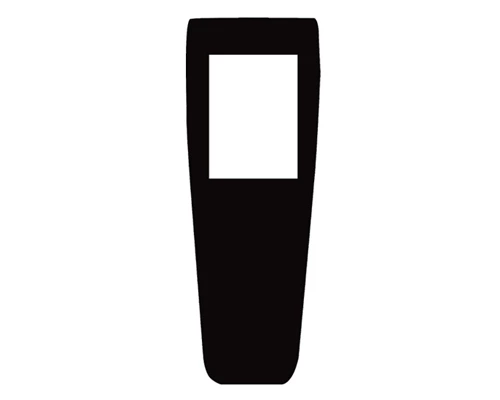
Shaped
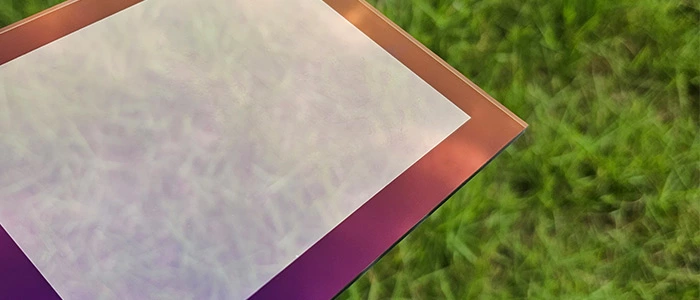
Anti-Reflection
Anti-Reflection (AR) - Reduces reflections from the display surface by applying a specific thickness of coating to the cover surface.
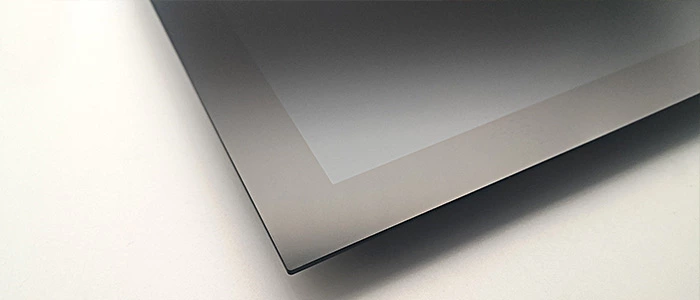
Anti-Glare
Anti-Glare (AG) - Eliminates bright glare from the display surface by creating a rough surface on the screen protector.
Anti-Fingerprint
Anti-Fingerprint (AF) - Prevents fingerprints and smudges on the display surface by applying a treatment that reduces the ability of the screen cover to retain oil.
Disea can provide cover lens with various special surface treatments, in addition to the regular 3A (AR AG AF) process cover lens.
Mirror process: it can be blue mirror, white mirror, it makes the whole cover lens look like a mirror when the display is in power off.
Brushed process: a process that is extremely textured to the touch, making your product look more artistic.
Wood grain process: it can simulate the texture of wood, it when the display is in power off, the whole cover looks like a piece of solid wood.
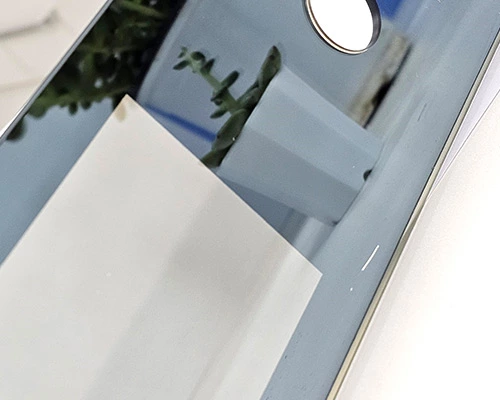
Mirror
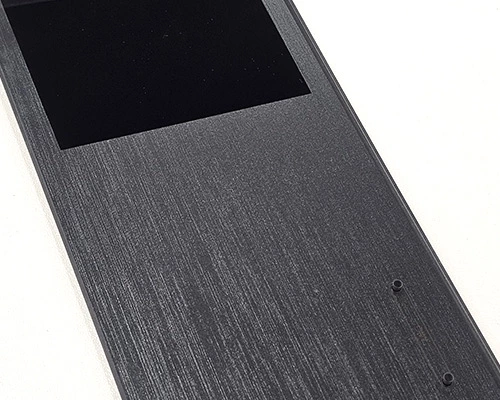
Surface brushed
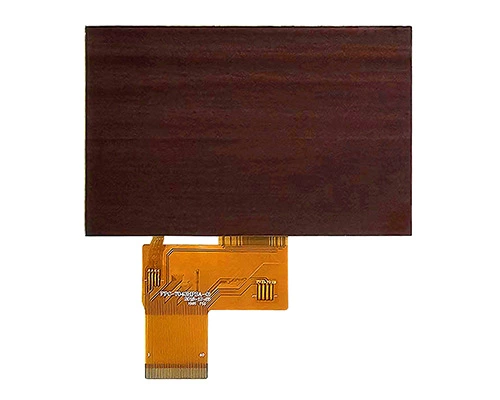
Wood grain
Anti-impac
The glass cover is toughened and it is strong, but there are still differences in its sturdiness. Some application scenarios need to withstand greater impact, which puts a higher demand on the strength of the cover.
We have to introduce a concept here: the IK rating, which ranges from IK00 to IK10, with higher ratings indicating a device that is more impact resistant.
Our covers are usually in the range of IK06 - IK08. Higher ratings depend on the size of the cover lens, its thickness, whether it is perforated or not, and cannot be generalised.
As an example, for a 7.0” 2mm cover, we can achieve IK07, which is equivalent to a 400g steel ball falling vertically into the centre of the cover from a height of 50cm, without breaking. This is enough for many application scenarios.
70+ engineers work for DISEA, most of them are from industry leaders of TFT LCD module, such as Tianma, BOE-Varitronix, etc. Each of our Core Team Members has 15 years of industry experience.
We use cookies to collect information about how you use this site. We use this information to make the website work as well as possible and improve our services.